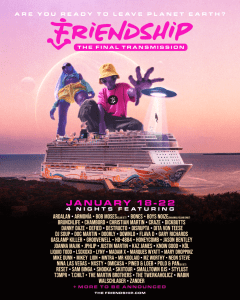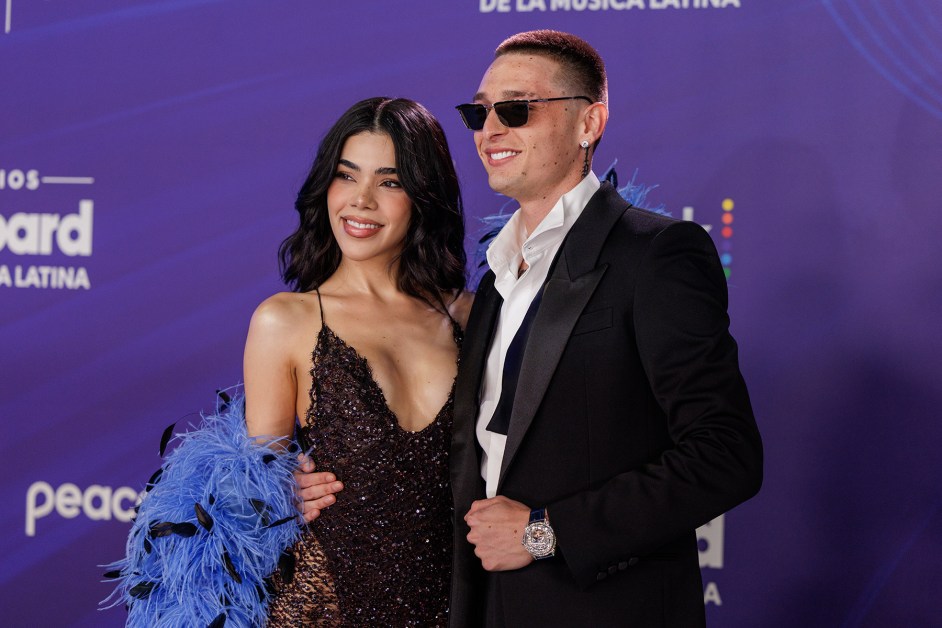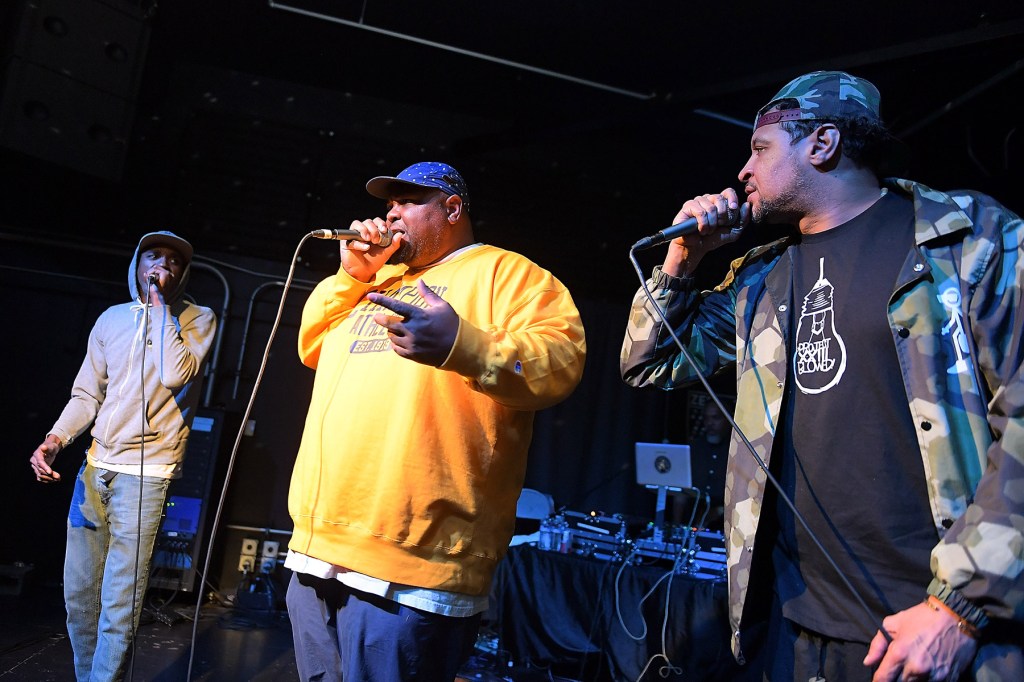Music
Page: 111
Trending on Billboard
Friendship will literally and figuratively sail on into the sunset in 2026, with organizer Gary Richards announcing that the next edition of the dance music cruise will be its last.
The event has dropped the 2026 lineup in tandem with the news, with scene luminaries including Bob Moses, Boys Noize, Polo & Pan, Mary Droppinz, Jason Bentley, Nina Las Vegas, Dita Von Teese, Mikey Lion, Justin and Christian Martin and Richards, who has long performed under his Destructo moniker, all on the bill.
See the complete lineup below, with additional names to be announced in the coming months.
“Friendship: The Final Transmission” will mark the fourth annual edition of Friendship and happens Jan. 18-22, 2026, aboard the Norwegian Joy, which can accommodate approximately 3,800 passengers in addition to crew. The voyage takes off from Miami, travels to Great Stirrup Cay in the Bahamas then sails back to Miami. Tickets and cabin packages are on sale now.
Richards helped forge the rave cruise model when he launched Holy Ship in 2012, with the party at sea an extension of the HARD events brand he also founded. The group of people who returned annually for Holy Ship came to be known as “Shipfam,” with many of them finding their way to Friendship when it started in 2023.
“Almost fourteen years ago, I had a vision to create something different, special and out of this world,” Richards says in a statement. “As a result of that, the Shipfam was born, a reoccurring group of people who would meet annually to travel with us. Our voyagers became a family, one that has shared moments that surpass the test of time and that feel like they’ll echo forever. Maybe this is the last one… or maybe it’s just the beginning of something new as we embark on this final transmission.”
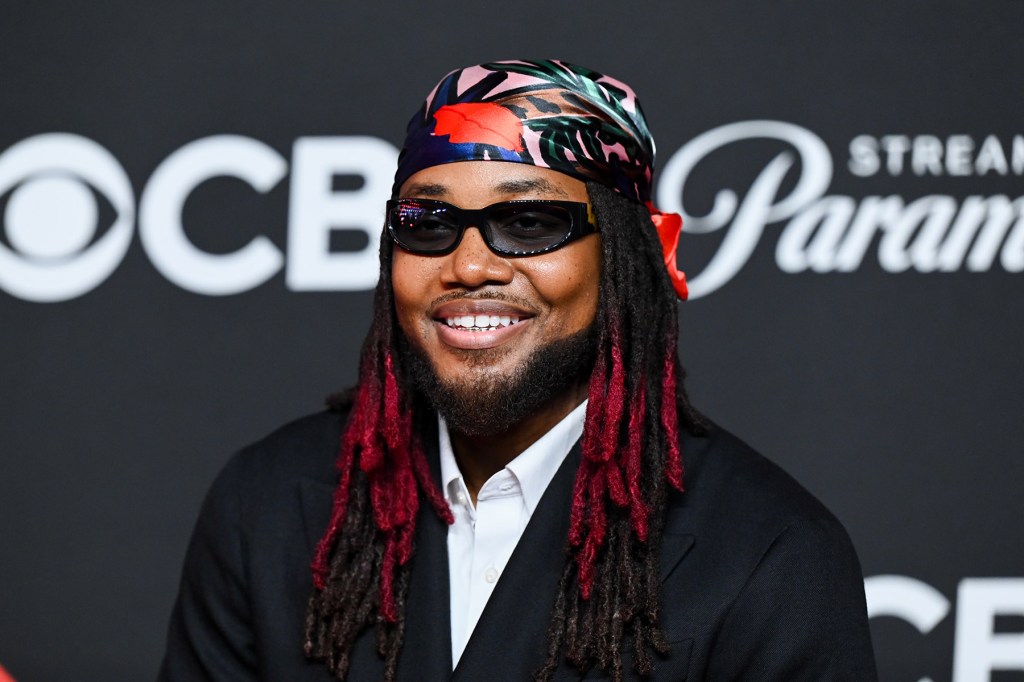
Trending on Billboard “Take your time, what’s the rush?” The lyric from Leon Thomas‘ 2024 hit “Mutt” couldn’t be more fitting to describe the song’s yearlong journey to the top 10 of the Billboard Hot 100, which it finally reaches this week. To be exact, “Mutt” took 38 chart weeks to reach its current position […]

Trending on Billboard Shakira and The Weeknd are two of several big names joining the FIFA Global Citizen Education Fund’s Advisory Board ahead of next year’s World Cup, it was announced Monday (Oct. 27). The Latin music superstar and Canadian hitmaker will work with fellow board members Ivanka Trump, Hugh Jackman, Gianni Infantino, Hugh Evans […]
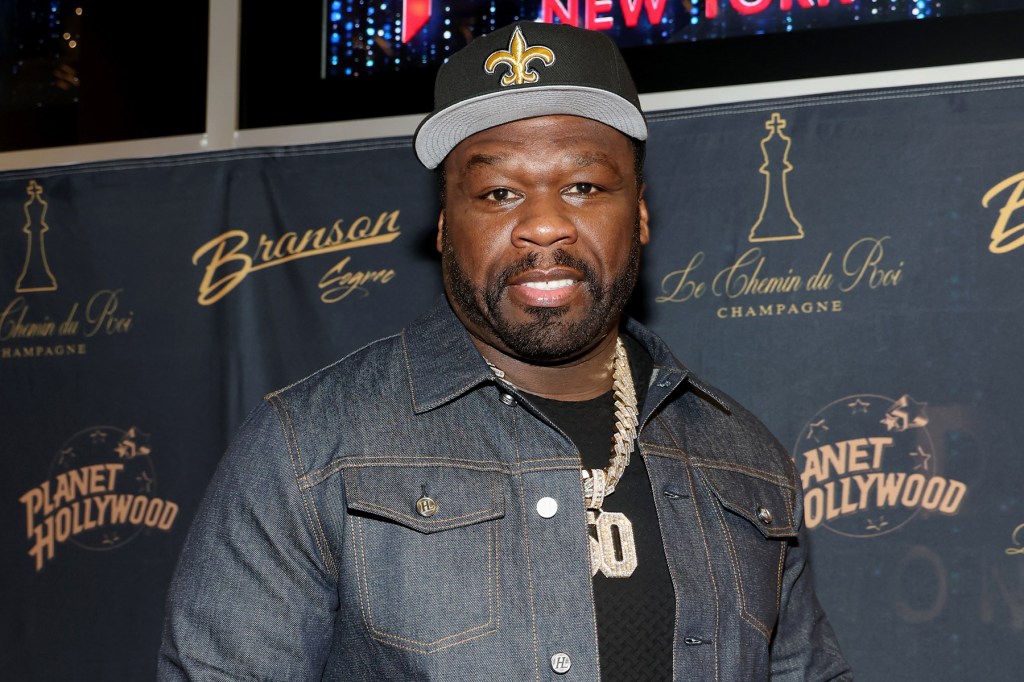
Trending on Billboard
50 Cent joked that he’s leaving G-Unit because Tony Yayo is taking too long to diss Jim Jones and Memphis Bleek.
Over the weekend, 50 Cent hopped on Instagram to show fans a day in his life. In one clip, he cracked some jokes while aboard a private jet with Tony Yayo about leaving G-Unit.
“I’ve been doing some soul searching, and I think I want out the group, OK?” Fif told Yayo.
“If anything, you just kicking us out the group,” Yayo responded.
“Took too long to respond to Jimmy and Memphis Bleek,” 50 Cent continued. “I’m saying, n—as is talking mad sh–, though. You not even like that.”
The hilarious exchange comes after Memphis Bleek and Jim Jones criticized Tony Yayo for comments he made about Jay-Z and loyalty. “Tell hype man Yayo, let’s see his show,” Memphis Bleek said earlier in October alongside a picture of himself performing to a sold-out crowd in Tokyo. The tweet was an insinuated response to Yayo’s claims that 50 Cent supported him more than Hov ever supported Memphis Bleek.
Bleek responded in more detail to Yayo’s claim while on Drink Champs: “I seen something Tony Yayo said — Hov don’t look out for me like 50 look out for him. I just want to clear that up: Hov don’t have to. I’m chewing a lot on my own. If Hov look out, I’m telling you, I’ll be up there. So when y’all see me out here, that’s the Blizzo budget. I just want to let n—as know Hov don’t have to.”
Jim Jones then entered the chat after he sat down for a convo with Bleek as part of the series Artist 2 Artist.
“Yayo smoke hard coke,” Jones said. “You look like you need to be taken care of na, you look like you need to go to the dentist, you look like you need to brush your teeth. You look like you need hygiene na. You look like you need help. Tell your man 50 to send you an ounce or something. You might need two ounces, n—a.”
Check out 50 Cent’s comments below.
From Peso Pluma & Kenia Os on the red carpet to Rauw Alejandro in his Cosa Nuestra era, check out these simple Halloween costume ideas.
10/27/2025

Trending on Billboard
Former Dancing With the Stars pros Maksim Chmerkovskiy and Peta Murgatroyd didn’t dance around their feelings on the subject of Taylor Swift backup dancer Jan Ravnik being cast as a professional dancer on the show.
On a recent episode of Murgatroyd’s The Penthouse With Peta podcast, she and Chmerkovskiy — who both previously served as resident pros in past seasons of the competition series and have been married since 2017 — questioned Ravnik’s place on the program. After accompanying the pop superstar on her global Eras Tour for nearly two years, the Slovenian-born dancer joined the cast of DWTS as a coach in August.
“Jan has absolutely no business being a pro on Dancing With the Stars,” Chmerkovskiy said frankly. “There’s zero foundation, technique, quality, understanding of the partnership.”
“Bro, I’m getting emotional,” he continued, rejecting Murgatroyd’s claim that Ravnik should be given “grace” as it’s only his first season on the show. “It is absurd. It’s unreal how blind we have to be, and God forbid say what’s obviously there. He had no idea what the foxtrot is supposed to look like. How are you going to expect him to teach it and deliver that message in a format that is completely different?”
Billboard has reached out to DWTS producers for comment.
The podcast comes shortly after Ravnik advanced to the next round of DWTS with his celebrity partner, Jen Affleck of The Secret Lives of Mormon Wives, following their performance on a Wicked-themed episode of the show featuring guest judge Jon M. Chu. The duo scored 8’s across the board — but Murgatroyd said she thinks Affleck is at a disadvantage with the Eras Tour alum as her partner.
“I feel bad, because she’s not getting taught the basics that she needs to,” said the podcaster. “He’s a Taylor Swift dancer, it’s the obvious reason why he was hired — apart from that, he’s a lovely guy, he looks great, he’s a great dancer.”
Despite Ravnik’s positive qualities, Murgatroyd added: “Hiring a non-ballroom dancer to teach ballroom dancing to a celebrity as a job is outrageous.”
The 34th season of DWTS kicked off in mid-September. In addition to Affleck, Whitney Leavitt — also of Mormon Wives fame — as well as Alix Earle, Robert Irwin, Scott Hoying of Pentatonix, Lauren Jauregui of Fifth Harmony, Jordan Chiles, Hilaria Baldwin and Danielle Fishel were cast as the show’s latest flock of celebrity amateur dancers.
And despite still coming down from the high of Swift’s groundbreaking Eras trek, Ravnik expressed how excited he was to be joining DWTS as a pro following his casting announcement in August. “I traveled all around the world with Eras Tour, and now I’m coming to the ballroom stage for Dancing With the Stars,” he said at the time in video statement on Good Morning America. “Mirrorball never goes out of style, and we are ready to win it.”
See Chmerkovskiy and Murgatroyd’s full discussion about Ravnik on DWTS below.
Trending on Billboard
Freestyle Fellowship rapper P.E.A.C.E. has died. The West Coast hip-hop group confirmed the rapper’s death in a post to Instagram over the weekend.
“Rest well brother P.E.A.C.E You had a great heart and you were authentic,” the post reads. “One of West coast Hiphop royal treasures. You will be surely missed my friend.”
His age and cause of death are unknown.
P.E.A.C.E. (real name: Mtulazaji Davis) was born in Dallas but raised in Los Angeles. He met Myka 9, Aceyalone and Self Jupiter at the Good Life Café in L.A. and formed the pioneering alternative rap group Freestyle Fellowship in the late ’80s.
The group broke through, showcasing an underground conscious side of West Coast rap with its 1991 debut To Whom It May Concern…
They followed up with Innercity Griots in 1993. Delayed due to Self Jupiter’s incarceration, the group released Temptations in 2001 and 2002’s Shockadoom EP. They returned nearly a decade later with The Promise in 2011, which serves as Freestyle Fellowship’s final release.
There were no details revealed surrounding the cause of P.E.A.C.E.’s death. Fans and plenty of peers paid their condolences with heartfelt messages on social media.
“The heavenly cypher just elevated rest in P.E.A.C.E all love,” rapper Saul Williams commented.
Dilated Peoples member Rakaa added: “This is heavy. RIP P.E.A.C.E. You will always be remembered and celebrated as one of the best to ever touch a mic, an architect of style(s), and a creative force of nature. Thank you for the inspiration, motivation, and laughter, my brother. Love. Strength and guidance to your family, friends, and @freestylefellowship.”
Myka 9 paid tribute to his Fellowship group member. “P.E.A.C.E. is the illest emcee from the most infamous Freestyle Fellowship,” he wrote. “There will never be another. Peace P.E.A.C.E., rest in power & paradise.”
P.E.A.C.E. released a pair of solo albums in the early 2000s with Southern Fry’d Chicken (2000) and Megabite (2004).
He notched collaborations over the years, ranging from Diplo to Abstract Rude and Orko, and he made an appearance in Ava Duvernay’s This Is the Life documentary about Good Life Café.
Trending on Billboard When it comes to pop stars with instantly recognizable looks, Britney Spears should always be in the conversation. Based on her first costume for this year’s Halloween festivities, it looks like Paris Hilton agrees. On Monday (Oct. 27), several days before the actual Halloween holiday, Hilton shared pictures of her Britney-inspired costume […]
Trending on Billboard Jamie Foxx came to GloRilla‘s defense after a large object was hurled at the rapper during a free performance. The incident transpired on Friday (Oct. 24) during GloRilla’s performance at a free, private Halloween party called SKVLK Fest in Southern California, which was hosted by Foxx’s 17-year-old daughter Anelise. The event was […]
Trending on Billboard A few years ago, the idea of Katy Perry dating Justin Trudeau would have sounded too random to be true — but in 2025, everything changed. The couple first came together over the summer, shocking fans as whispers — followed by photos and videos — linked them together. From there, the Cali-born […]

 State Champ Radio
State Champ Radio 